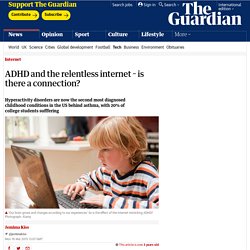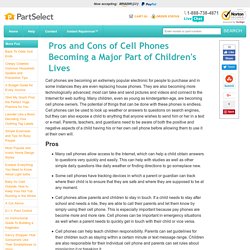

Can we break free from the fear of missing out? – Jacob Burak. Here’s a test you might enjoy: rate these scenarios on a number scale, ranging from 1 for mild discomfort to 7 for outrageous distress. Scenario 1: you’re flicking through news websites, as you do every morning. Today, however, you’re behind schedule and have only 15 minutes to read articles, instead of your usual 30. You have to skip some of your favourite columns and sections. How would you rate your level of discomfort? (Most of us would probably choose a low level, say 2.) FOMO: What’s the psychology behind the fear of missing out? It’s ‘digital heroin’: How screens turn kids into psychotic junkies. Susan* bought her 6-year-old son John an iPad when he was in first grade. “I thought, ‘Why not let him get a jump on things?’
” she told me during a therapy session. John’s school had begun using the devices with younger and younger grades — and his technology teacher had raved about their educational benefits — so Susan wanted to do what was best for her sandy-haired boy who loved reading and playing baseball. She started letting John play different educational games on his iPad. Eventually, he discovered Minecraft, which the technology teacher assured her was “just like electronic Lego.” Enlarge Image At first, Susan was quite pleased. Still, Susan couldn’t deny she was seeing changes in John.
Although that concerned her, she thought her son might just be exhibiting an active imagination. Then, one night, she realized that something was seriously wrong. “I walked into his room to check on him. Is Social Media the New Addiction? Not only do social media consumers visit their favorite social sites throughout the day, but almost one-half (48%) of them check Twitter or Facebook during the night or as soon as they wake up in the morning, according to a survey from Retrevo.

Younger social media users are most likely to check in with social sites at night: 19% of those under age 25 check in with Facebook or Twitter whenever they wake up during the night, compared with 11% of those age 25+, the study found. Below, other findings from Retrevo's Gadgetology Report. Social media connections are on peoples' minds early in the morning: 42% of social media users check in with Facebook or Twitter as soon as they wake up in the morning, and 16% say social media provides them with their morning news. ADHD and the relentless internet – is there a connection? The internet might make you feel hyperactive, but do you really have attention deficit hyperactivity disorder?

Michael Pietrus PsyD, coordinator of the ADHD assessment protocol at the University of Chicago, explains how the internet encourages behaviour that at least mimics ADHD, and can exacerbate the condition in people who have it already. Pietrus looks after many students at the college who feel the effects of academic and social pressure. In the US, 11% of children between four and 17 now have a diagnosis of ADHD and the rates have been going up by 5% every year from 2003 to 2011. It’s now the most commonly diagnosed condition for children in the US after asthma. Twenty per cent of the US college population now have ADHD, which appears as hyperactivity, inattention and impulsivity, and are at higher risk of substance abuse and self medication, depression and a host of other consequent conditions. Pros and Cons of Cell Phones Becoming a Major Part of Children's Lives. Cell phones are becoming an extremely popular electronic for people to purchase and in some instances they are even replacing house phones.

They are also becoming more technologically advanced; most can take and send pictures and videos and connect to the Internet for web surfing. Many children, even as young as kindergarten-age, are becoming cell phone owners. The potential of things that can be done with these phones is endless. Cell phones can be used to look up weather or answers to questions on search engines, but they can also expose a child to anything that anyone wishes to send him or her in a text or e-mail. Parents, teachers, and guardians need to be aware of both the positive and negative aspects of a child having his or her own cell phone before allowing them to use it at their own will. Pros Many cell phones allow access to the Internet, which can help a child obtain answers to questions very quickly and easily. Cons Additional Information. FOMO: This Is The Best Way To Overcome Fear Of Missing Out. You hear about FOMO a lot these days.

In fact, the word was added to the Oxford English Dictionary in 2013. What does it really mean? A recent study on the subject defined it as: …‘‘the uneasy and sometimes all-consuming feeling that you’re missing out – that your peers are doing, in the know about, or in possession of more or something better than you’’. Under this framing of FoMO, nearly three quarters of young adults reported they experienced the phenomenon. It’s certainly not a good thing. Sometimes that alleviates the anxiety — but often it doesn’t.